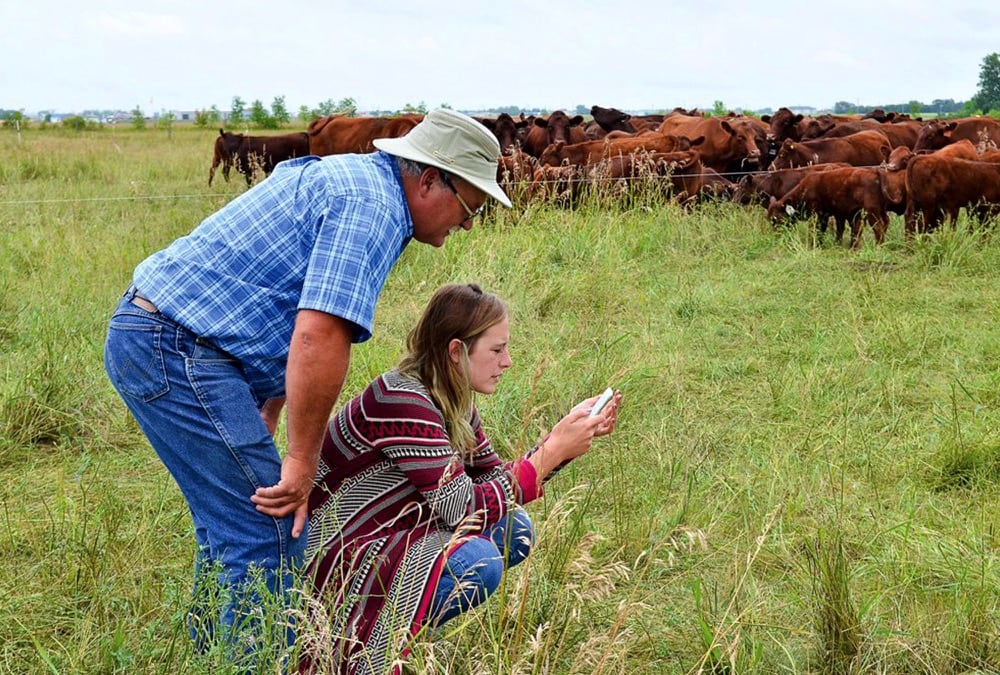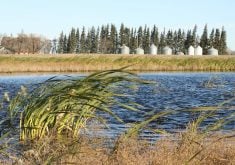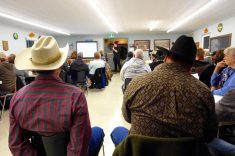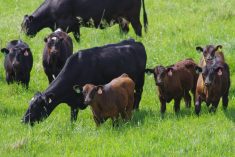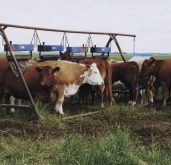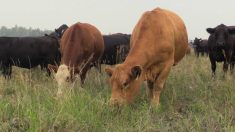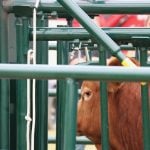Manitoba has its first national TESA winner of the 21st century.
The Canadian Cattlemen’s Association’s ‘The Environmental Stewardship Award’ was given to Circle H Farms, owned and operated by the Harper family of Brandon, August 15 during the Canadian Beef Industry Conference. That event was held in London, Ont. this year.
TESA is for producers who “go above and beyond standard industry conservation practices and set positive examples for other cattle producers and the general public.”
The last Manitoban to receive the award was Laurie Davidson of Solsgirth, named in 1999.
Read Also
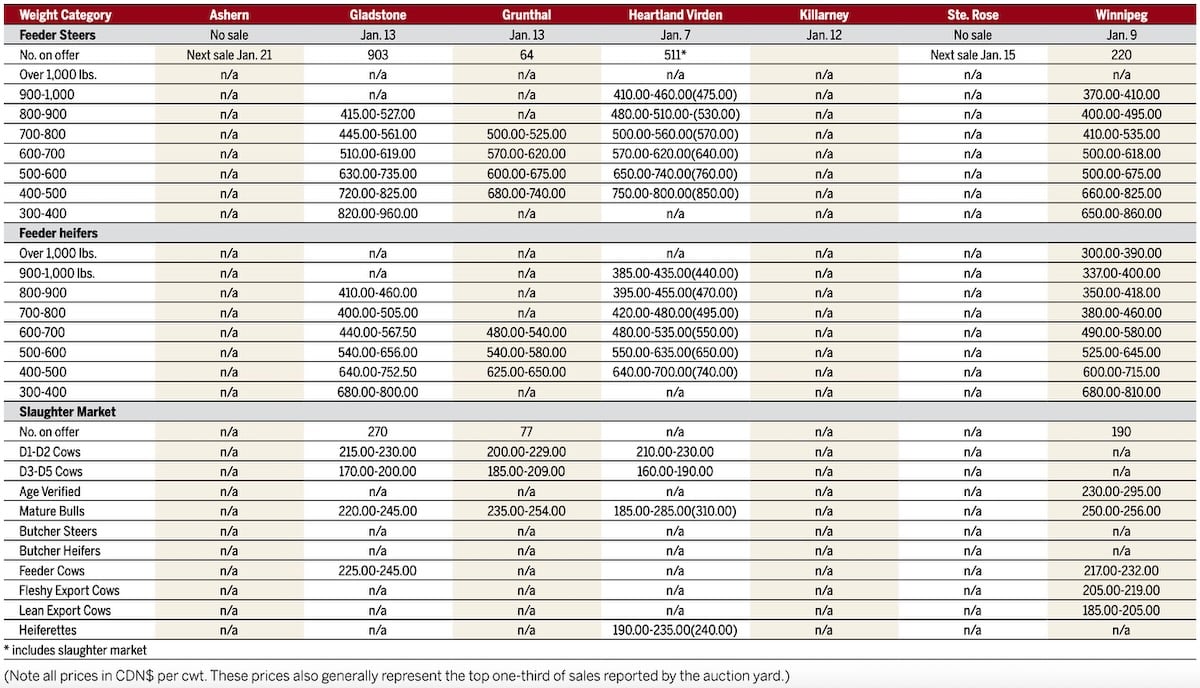
Manitoba cattle prices, Jan. 15
Brian Harper described the award as “overwhelming,” although it is not his first brush with the limelight. In 2004, the Harpers were named Conservation Farm Family of the Year, followed by a win as Manitoba Grazer of the Year three years later.
“I was only doing stuff I thought was working best for me, but it turns out it’s best for the environment as well,” Harper said.
Ongoing experiment
As well as bale grazing and tree planting, the Harpers are well known for their experimental take on livestock management. Their 500-acre farm is home to 80 purebred Lincoln Red, North Devon and Shaver Beefblend, bred for forage-only production and used to the frequent moves of adaptive grazing.
The farm has become a vocal advocate for high stock density grazing and, in 2014, became the site of a multi-year experiment with the Commission for Environmental Co-operation to measure changes in soil health, live- stock productivity and biodiversity, among other variables, on intensively grazed land.

The Harpers had already been rotationally grazing, moving their herd across eight paddocks every four days. The experiment brought that system up to twice-daily moves, with each paddock spanning only a half-acre.
The Harpers eventually increased their beef production by 9,400 pounds an acre on the 130 acres used for the experiment, while also producing more forage and soil microbial activity, better water retention (something Harper says is immediately noticeable this year, with dry conditions striking his neighbours) and drawing out grazing season length. Results also noted 138 bird species on that land by the end of the experiment; well over the 23 counted at the control site.
Harper jumped stocking rate another 15 per cent from 2016 to 2017, bringing stocking levels up two-thirds from 2013, before the experiment began.
“We actually promote pushing the stock density more and more every year. This year, I actually took a step back and I backed off on the stock density for part of the year just to throw that bit of disruption in there,” Harper said. “We’ll know in the future if we should have or not. Having said that, we still have lots of opportunity to increase our density even higher than what we do manage.”
Water also earned the Harpers a nod with the Canadian Cattlemen’s Association. Over time, the farm has integrated off-site watering technology to support its adaptive grazing program.
“What set the Harpers apart in their focus on soil health and soil biology is the use of technologies, innovative management practices and keen observations to gain an intimate understanding of enhancements that
most benefit their specific environment. That stood out with the judges,” CCA Environment Committee chair Duane Thompson said in a release.
“Their commitment to regenerating soils to improve livestock and ecosystem health demonstrates the commitment to sustainability that the TESA embodies,” he added.
Carbon sequestration and soil health were common themes across the nominees this year, Thompson said.
Growing the herd
Brian Lemon, Manitoba Beef Producers general manager, called the award, “hugely exciting.”
“Manitoba is different from the other provinces in terms of our production models,” he said, pointing to a historically wetter climate and grass-based focus. “It’s easy for us to think of ourselves sometimes as the small cousin in the Prairies.
“I think what we do for the environment is — especially in today’s world where you see people making choices in their menu based on what they perceive as the environmental impacts of different food production — it’s hugely important to see someone from Manitoba to be awarded for the fact that they’re actually improving the environment through their production practices.”
The Manitoba Beef Producers is pushing to tie grazing with carbon sequestration in the public eye and is encouraging those practices with its members.
Relatively few producers in Manitoba are following his footsteps, Harper said, although he says interest is picking up. He reports a growing number of interested farmers and, in particular, more young producers attending his frequent field days.
“The reality is that we’re trying to grow our industry, but we’re not growing any more acres,” Lemon said. “The challenge is to be environmentally sensitive, to look at soil health, to take it seriously, and to figure out how to produce more beef on the same number of acres and things like rotational grazing, the high intensity grazing, these are all ways to help improve soil health and at the same time improve your bottom line.”
Circle H Farms earned a slot in the national competition after being named Manitoba TESA winners by MBP earlier this year.


